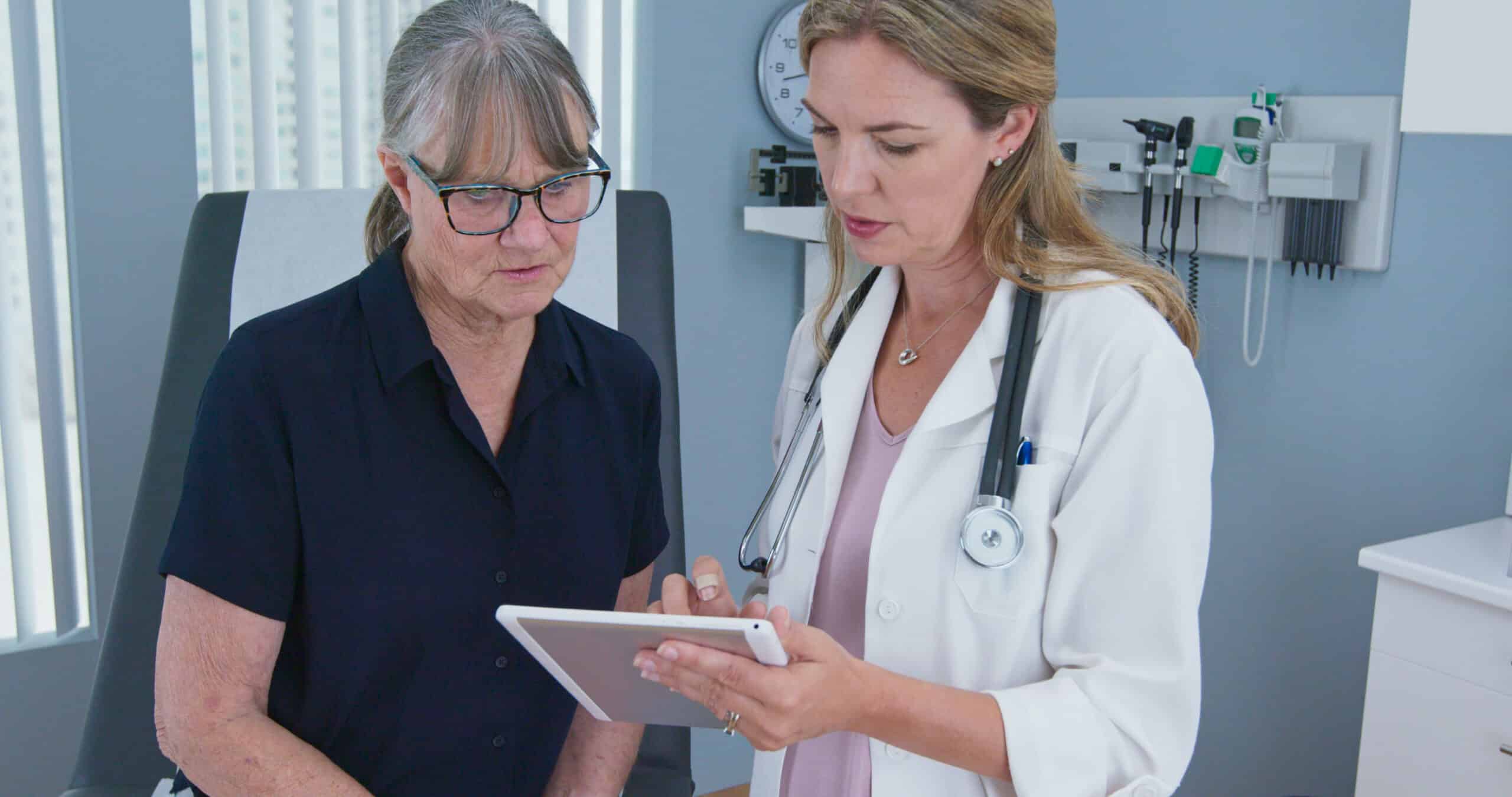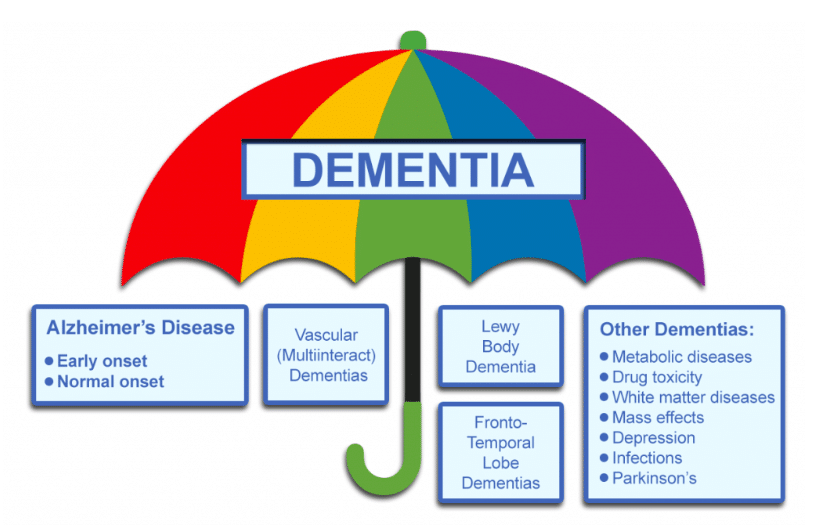Dementia is a general term for loss in memory, language, reasoning, and other thinking abilities that are severe enough to interfere with daily life and activities. Most causes of dementia have a gradual worsening of symptoms over the years due to neurodegeneration, which refers to the progressive loss of the brain’s primary cells, called neurons. Dementia ranges in severity from the mildest stage, when it is just beginning to affect a person’s functioning, to the most severe stage, when the person must depend completely on others for basic activities of daily living, like eating and dressing.
It’s important to note that dementia impacts many aspects of cognition, not just memory. Below are areas of cognition that may be impacted by a dementia diagnosis:
- Memory– Learning new things, short-term memory, remembering tasks for the day
- Attention– Concentration, ability to stay on task
- Language– Word finding, understanding the speech of other people, ability to name items
- Executive functioning– Reasoning, problem-solving, decision-making, behavior management
- Visuospatial abilities– Interpreting and understanding spatial relationships
Many conditions and diseases cause dementia. The most common cause of dementia is Alzheimer’s disease. Other causes include substance misuse and depression, as well as different kinds of brain changes that lead to vascular dementia, Lewy body dementia, frontotemporal disorders. In addition, some people have mixed dementia, which is a combination of two or more dementia-causing diseases. Learn more about each disease by clicking below.
- Mild cognitive impairment
- Alzheimer’s disease
- Vascular dementia
- Frontotemporal dementia
- Lewy Body dementia & Parkinson’s dementia
- Limbic-predominant Age-related TDP-43 Encephalopathy (LATE)
The symptoms of dementia are different for everyone. Even people with the same dementia diagnosis may experience the symptoms differently. People may have difficulty with language, memory, walking, vision, mood changes, among other symptoms. Different types of dementia tend to target different parts of the brain, which may explain some of the heterogeneity, or differences, for symptom presentation among people.
Mild Cognitive Impairment (MCI) is not dementia. Mild cognitive impairment (MCI) is a condition in which people have more memory or other thinking problems than normal for their age, but their symptoms do not cause disability. While some memory and thinking changes are normal as we age, dementia and Mild Cognitive Impairment are not. Learn more about Mild Cognitive Impairment here.
Resources:
Sharing a diagnosis with others
Knowing how and when to share a dementia diagnosis with your loved ones can be difficult. After learning about a dementia diagnosis, you may feel overwhelmed and frightened. There is no one way to tell others about the diagnosis, and some may prefer to hold off on sharing the news. If possible, first discuss with the person living with dementia how they prefer to handle the situation and get their permission before sharing the diagnosis.
Why share the diagnosis? As dementia progresses, you may need the support of those around you. By discussing the diagnosis, you may open a path to begin these discussions. It’s normal to feel anxious or discomfort about sharing the diagnosis. Keep in mind that family and friends might already sense that something is wrong and talking about the diagnosis may bring relief to all involved.
Who to tell? Consider the relationships in your life and who you would want to know about the diagnosis. Who makes up your support system? Some people choose to tell just their closest family or friends, others prefer to tell more people. Some choose to tell closest family and friends first, and then reach out to others as they feel comfortable.
How and when to tell others? You may want to tell others about the diagnosis right away or you may wait until you’ve had time to process the diagnosis yourself. Find a time when you are together with your loved one(s) alone and in a quiet place. Plan beforehand what you’re wanting to tell them. You may want to write down your thoughts beforehand.
Educate your loved ones on the disease. Connect them with online resources or educational pamphlets on the dementia diagnosis. Family and friends may want to learn more about the symptoms and what to expect about disease progression to prepare for the future. For individuals in an early stage of dementia, consider reminding your loved ones that although you’re living with dementia, who you are and your relationships with those close to you have not changed. Explain what has changed in your mind and what hasn’t. Tell your loved ones how they can help.

